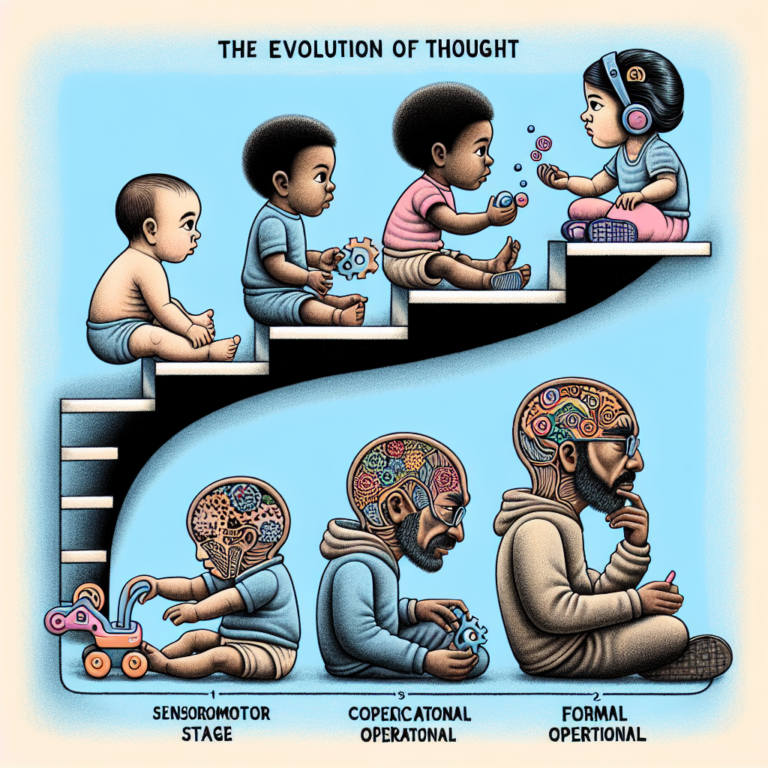
Introduction
Test anxiety is a struggle that affects millions of students worldwide, transforming what should be a straightforward assessment into an overwhelming ordeal. The pressure to perform well can lead to feelings of panic, resulting in negative impacts on mental well-being and academic performance. But what if we could turn that anxiety into confidence? In this comprehensive article titled From Panic to Peace: Effective Strategies for Managing Test Anxiety, we will explore practical strategies and insights that can help individuals reclaim their peace of mind before exams.
Understanding Test Anxiety: The Basics
What is Test Anxiety?
Test anxiety is characterized by extreme worry and apprehension about academic assessments. It’s a psychological phenomenon where the fear of failure becomes so overwhelming that it impedes performance. According to a study published in the Journal of Educational Psychology, up to 40% of students experience significant test anxiety at some point during their academic careers.
Why Does Test Anxiety Occur?
Several factors contribute to test anxiety:
- Pressure to Succeed: High stakes from parents, teachers, or the individual can lead to undue stress.
- Fear of Judgment: Students often fear how others perceive their performance.
- Perfectionism: Holding oneself to unachievable standards can create a sense of helplessness.
Understanding these underlying factors is crucial to implementing effective management strategies.
Case Study: Sarah’s Journey to Overcoming Test Anxiety
Sarah, a high school senior, excelled in coursework but experienced intense anxiety during exams. Despite diligent preparations, she often froze when faced with a test. Following the methods outlined in this article, she adopted relaxation techniques and improved her study habits. By her final exams, Sarah reported feeling "empowered and ready," ultimately achieving her dream score.
Analysis
Sarah’s transformation highlights a key insight: The shift from panic to peace is possible with the right strategies. This aligns perfectly with the premise of From Panic to Peace: Effective Strategies for Managing Test Anxiety.
Effective Strategies for Managing Test Anxiety
1. Preparation: The Foundation of Confidence
Importance of Study Habits
One of the most effective ways to combat test anxiety is through thorough preparation. Developing a structured study schedule can significantly enhance confidence.
Study Techniques
- Active Recall: Testing yourself on the material rather than passively reading helps reinforce memory.
- Spaced Repetition: Distributing study sessions over time improves retention.
- Practice Tests: Simulating the test environment can desensitize you to the pressure.
Table 1: Effective Study Techniques
| Technique | Description | Benefit |
|---|---|---|
| Active Recall | Retrieving information from memory | Enhances understanding |
| Spaced Repetition | Practicing over intervals | Boosts long-term retention |
| Practice Tests | Mimicking exam conditions | Reduces test-day anxiety |
2. Mindfulness and Relaxation Techniques
Integrating mindfulness into your routine can transform your relationship with anxiety. Techniques include:
- Deep Breathing: Inhale slowly for four counts, hold for seven, and exhale for eight. This method calms the nervous system.
- Meditation: Practicing mindfulness meditation can help you cultivate a sense of tranquility.
- Visualization: Imagine yourself succeeding in the exam environment.
Case Study: Mike’s Mindfulness Approach
Mike, a college freshman, discovered meditation through self-help resources. With daily practice, he learned to redirect his focus away from anxiety. His academic performance improved dramatically, and he reported a newfound sense of peace.
Analysis: Mike’s experience shows that mindfulness can be a breakthrough for many struggling with performance anxiety, emphasizing the core message of From Panic to Peace: Effective Strategies for Managing Test Anxiety.
3. Positive Self-Talk and Affirmations
Your internal dialogue shapes your experiences. Replace negative thoughts with positive affirmations. For example, reciting "I am prepared and capable" can shift your mindset.
Techniques for Positive Self-Talk
- Create a mantra: Develop a phrase that reinforces confidence.
- Visualize success: Envision yourself performing well during the test.
- Challenge negative thoughts: Identify irrational beliefs and reframe them.
4. Time Management
Effective time management reduces last-minute cramming and stress. Consider the following strategies:
- Prioritize tasks: Focus on high-impact tasks first.
- Set realistic goals: Break larger goals into manageable steps.
- Use a planner: Keeping track of deadlines cultivates accountability.
Table 2: Time Management Techniques
| Technique | Description | Benefit |
|---|---|---|
| Prioritize Tasks | Focusing on what’s most important | Increases efficiency |
| Set Realistic Goals | Achieving small milestones | Builds momentum and morale |
| Use a Planner | Keeping organized with deadlines | Reduces overwhelm |
5. Physical Wellbeing
Your body and mind are interconnected; nurturing your physical health can greatly influence your mental state. This includes:
- Regular Exercise: Physical activity releases endorphins, promoting feelings of well-being.
- Proper Nutrition: A balanced diet fuels both body and mind. Foods rich in Omega-3 fatty acids, for instance, are known to boost cognitive functions.
- Adequate Sleep: Quality sleep can drastically improve focus and reduce anxiety.
Case Study: Emily’s Fitness Journey
Emily, a high school junior, found that participating in soccer helped alleviate her test anxiety. The physical activity not only improved her fitness but also gave her a productive outlet for stress.
Analysis: Emily’s case reinforces the connection between physical and mental health, supporting the idea of holistic approaches in From Panic to Peace: Effective Strategies for Managing Test Anxiety.
Conclusion
Managing test anxiety may seem daunting, but with the right strategies, one can transition from a state of panic to one of peace. Embracing preparation, mindfulness, positive self-talk, time management, and physical well-being can significantly alter an individual’s perspective towards tests and assessments.
Motivational Takeaway
Remember, it’s not just about achieving high scores; it’s about nurturing a positive mindset that fosters growth and resilience. Shifting your focus from anxiety to empowerment is indeed achievable.
FAQs Section
1. What are the signs of test anxiety?
Signs include excessive worrying, difficulty concentrating, physical symptoms like sweating or shaking, and avoidance of tests.
2. Can test anxiety be overcome completely?
While anxiety may not disappear entirely, it can be effectively managed using the strategies outlined in this article.
3. Is it normal to feel anxious before tests?
Yes, feeling anxious is a common and natural reaction. However, learning how to manage it can improve performance.
4. How can parents help children manage test anxiety?
Parents can provide support by fostering a calm study environment, encouraging open discussions about fears, and emphasizing effort over outcome.
5. Are there professional resources available for test anxiety?
Yes, counseling services, tutoring, and workshops focused on stress management can provide additional support and strategies.
This extensive exploration of From Panic to Peace: Effective Strategies for Managing Test Anxiety underscores that with the right tools and mindset, overcoming anxiety is not merely a dream but an achievable reality. Take the first step today, and let your journey to peace begin!














